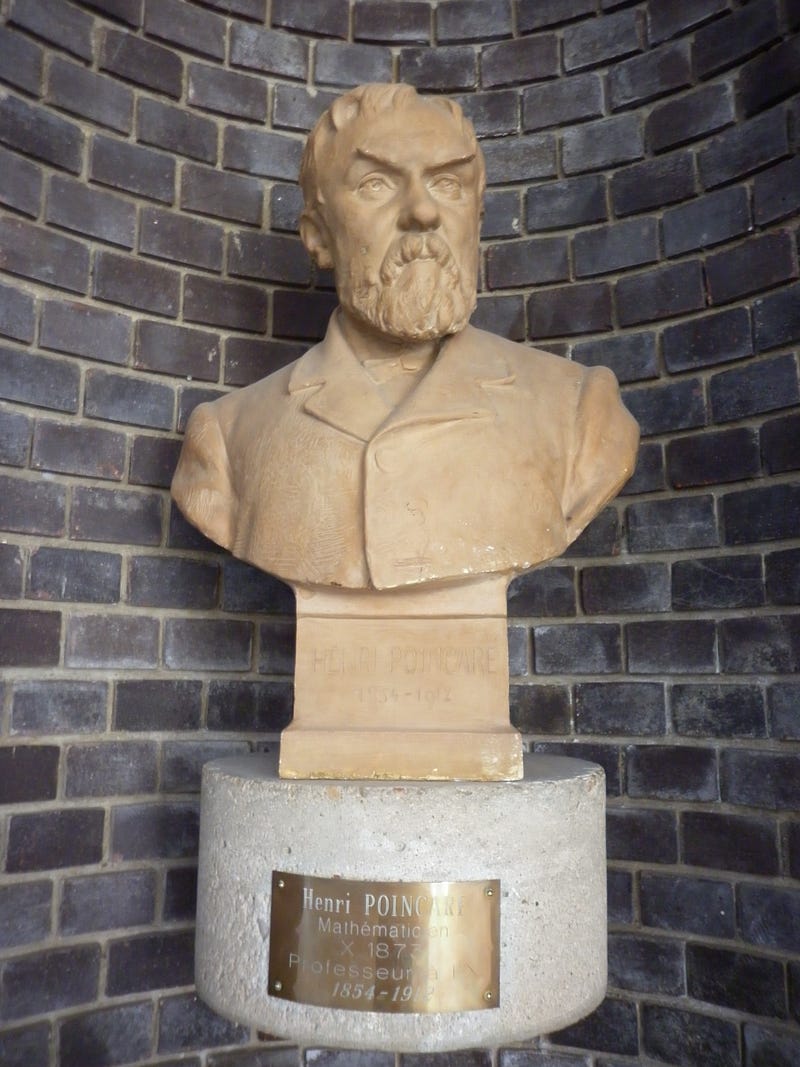Exploring Poincaré's Impact on Mathematics and Philosophy
Written on
Chapter 1: Who Was Henri Poincaré?
Henri Poincaré was a highly esteemed figure in the realms of astronomy, mathematics, physics, and philosophy. His broad contributions have led to his recognition as the “last universalist” and a true “polymath.” Many credit him as a precursor to the theory of relativity. According to Emily Adlam, Poincaré established the correct equations for Lorentz transformations and articulated the principles of relativity well before Einstein. He also derived the appropriate relativistic transformations for force and charge density and formulated the rules for the relativistic composition of velocities.
Moreover, Poincaré was actively engaged in significant social issues, notably assisting French authorities during the infamous Dreyfus trial. This involvement exemplifies the commitment of intellectuals and scientists to political and social discourse during that era.
His prominence and influence in the scientific community made it relatively straightforward for him to engage in the intense debates surrounding the foundations of mathematics in the early 20th century. Unlike many contemporaries who penned extensive treatises, Poincaré’s contributions to the philosophy of mathematics were primarily through succinct essays and correspondence.

Chapter 2: Poincaré’s Philosophy of Mathematics
Poincaré identified as an intuitionist, aligning himself with Kant’s philosophy of mathematics. His aim was to reconcile Kant’s pure forms of transcendental intuition with the creativity inherent in mathematical innovation. However, this endeavor was contentious, as many mathematicians advocate the view that mathematics is discovered rather than invented.
Additionally, Poincaré sought to counter the logicist perspectives put forth by Bertrand Russell, Frege, and Couturat. He believed that logic could not encompass all mathematical knowledge through mere classification rules. For Poincaré, while logic could address potential infinity, it fell short regarding actual infinity.
Regrettably, Poincaré passed away in 1912 before witnessing the culmination of the foundational debates in mathematics. However, as noted by Jeremy Gray, Poincaré's reservations were validated in 1931 with the publication of Gödel’s Incompleteness Theorems. Gray states, “Poincaré (…) was critical of attempts to reduce all of mathematics to symbolic logic (as advocated by Bertrand Russell in England and Louis Couturat in France) and of attempts to reduce mathematics to axiomatic set theory. In these beliefs, he turned out to be right, as shown by Kurt Gödel in 1931.”
The first video delves into Henri Poincaré's legacy as a universalist in mathematics, exploring his philosophical contributions and their significance in modern mathematics.
Chapter 3: Poincaré’s “Logic of Infinity”
Poincaré's concepts of the "logic of infinity" echo Gödel’s reasoning. He proposed two types of classification: immutable (predicative) and mutable (non-predicative). He argued that closed formal systems, akin to those employed by Cantorian philosophers like Frege and Russell, were susceptible to mutable classifications, thus could not be deemed immutable. Consequently, these systems could not demonstrate their own completeness.
Poincaré, Leibniz, and Mathematical Foundations: A Chess Analogy
In his work Science and Hypotheses (1902), Poincaré expressed dissatisfaction with the current approach to the foundations of mathematics. Reflecting on a demonstration by Leibniz regarding “2+2=4,” he asserted that relying solely on a couple of true propositions would not yield a truly fundamental statement in mathematics. He likened it to a chess player who does not create a science by merely capturing a piece, emphasizing that genuine science must address broader principles.
If you wish to delve deeper into Poincaré’s notion of the "logic of infinity," I recommend examining chapters 4 and 5 of Mathematics and Science: Last Essays (1912).
For a more comprehensive understanding of Poincaré’s intuitionism, consider reading "Intuition in Poincaré’s Philosophy of Mathematics" (2019) by Koray Akçagüner, published in Beytulhikme International Journal of Philosophy, Vol. 9, (4), pp. 925–940.
The second video provides insights into Poincaré's perspective on understanding mathematics, shedding light on his philosophical contributions and their relevance today.